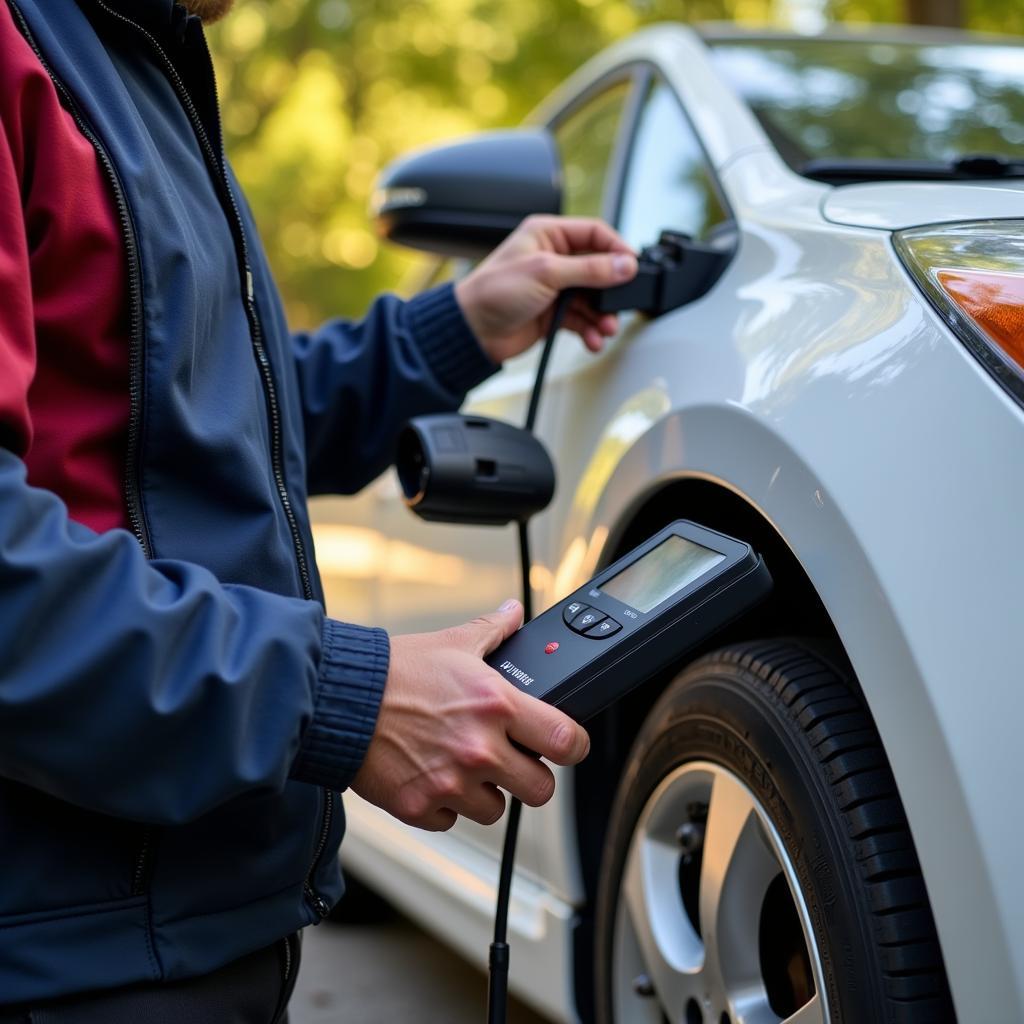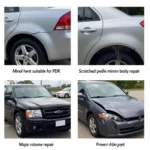Finding a reliable place for a car diagnostic test can be stressful. Where can I take my car for a diagnostic test and be confident in the results? This article provides a comprehensive guide to help you navigate the options and make the best choice for your vehicle.
Getting a car diagnostic test is crucial for maintaining your vehicle’s health and addressing any underlying issues. From independent garages to dealerships and mobile mechanics, several options are available, each with its own set of advantages and disadvantages. Understanding these options will help you choose the best fit for your needs and budget. Knowing where to take your car for a diagnostic test can save you time, money, and unnecessary headaches down the road. For instance, you might be interested in our article on car diagnostic Manchester if you live in the area.
Understanding Car Diagnostic Tests
A car diagnostic test uses specialized software to communicate with your vehicle’s onboard computer, the Engine Control Unit (ECU). This test can pinpoint the source of various problems, from a check engine light to more complex issues related to the transmission, ABS, and other systems.
Why are Diagnostic Tests Important?
Diagnostic tests are essential for several reasons:
- Early Problem Detection: They can identify issues before they become major and costly repairs.
- Accurate Diagnosis: They provide specific error codes, leading to targeted repairs rather than guesswork.
- Peace of Mind: Knowing the exact problem gives you confidence in the repair process.
- Cost Savings: Accurate diagnoses prevent unnecessary part replacements and labor costs.
You may find our resource on Toyota car diagnostic test price South Africa helpful if you’re looking for specific pricing information.
Where Can You Take Your Car for a Diagnostic Test?
Several options exist for car diagnostic tests, each with its pros and cons.
Independent Garages
Independent garages are often a cost-effective option for diagnostic tests. Many are equipped with the latest diagnostic tools and have experienced mechanics.
Dealerships
Dealerships have specialized technicians trained on your specific car make and model. While they might be more expensive, they offer expertise and access to original equipment manufacturer (OEM) parts.
Mobile Mechanics
Mobile mechanics bring the diagnostic test to you, offering convenience for busy schedules or if your car is not drivable. However, their diagnostic capabilities might vary.
 Mobile Mechanic Performing Diagnostic Test on a Car
Mobile Mechanic Performing Diagnostic Test on a Car
Chain Repair Shops
Chain repair shops offer a standardized experience and often have competitive pricing. However, the level of expertise might vary between locations.
DIY Options
If you’re technically inclined, DIY diagnostic tools are available. These tools, often paired with smartphone apps, can provide basic error code readings. However, interpreting these codes and performing repairs requires some mechanical knowledge. If this is an area of interest for you, you might want to explore the best OBD diagnostic tools for car DIY.
Choosing the Right Option for You
Consider these factors when deciding where to take your car for a diagnostic test:
- Budget: Dealerships tend to be more expensive than independent garages.
- Complexity of the Issue: For complex problems, a dealership or specialist might be better equipped.
- Convenience: Mobile mechanics offer the most convenience.
- Trust and Reputation: Research reviews and ask for recommendations.
“A thorough diagnostic test is the first step to any successful car repair,” says John Smith, Senior Automotive Technician at Smith’s Auto Repair. “It’s an investment that can save you money and frustration in the long run.”
How Much Does a Car Diagnostic Test Cost?
The cost of a diagnostic test varies depending on the location, type of vehicle, and complexity of the problem. It can range from $50 to $200 or more. Some garages might offer a free diagnostic test with a repair. Be sure to inquire about the cost upfront.
If you are interested in marketing your car diagnostic company, we have resources available on that topic as well.
What Happens During a Diagnostic Test?
The technician connects a diagnostic tool to your car’s OBD-II port, usually located under the dashboard. The tool retrieves error codes stored in the ECU. The technician interprets these codes to identify the problem area.
What to Expect After the Diagnostic Test
The technician will explain the results and recommend necessary repairs. You can then decide whether to proceed with the repairs at that location or seek a second opinion.
“Don’t hesitate to ask questions about the diagnostic results,” advises Maria Garcia, Certified Automotive Technician and owner of Garcia’s Auto Clinic. “A good technician will be happy to explain the findings in a way you can understand.”
Conclusion
Knowing where to take your car for a diagnostic test empowers you to make informed decisions about your vehicle’s maintenance. By understanding the options available and considering factors like cost, convenience, and expertise, you can ensure your car receives the proper care it deserves. A timely diagnostic test can prevent small problems from escalating into major expenses, keeping your car running smoothly and reliably.
FAQ
-
What is a car diagnostic test? A car diagnostic test is a procedure using specialized software to read error codes from your car’s computer, identifying potential issues.
-
How long does a diagnostic test take? It typically takes between 30 minutes to an hour.
-
Do I need a diagnostic test if my check engine light is on? Yes, a diagnostic test is recommended to determine the reason for the check engine light.
-
Can I do a diagnostic test myself? Basic DIY tools are available, but interpreting the results requires some mechanical knowledge.
-
How much does a car diagnostic test cost? The cost varies, typically ranging from $50 to $200 or more.
-
What if I disagree with the diagnostic results? You can always seek a second opinion from another repair shop.
-
What is the OBD-II port? The OBD-II port is the standardized connection point used for diagnostic testing.
Common Diagnostic Test Scenarios:
- Check Engine Light: This is the most common reason for a diagnostic test.
- Transmission Problems: Slipping gears, rough shifting, or delayed engagement might warrant a diagnostic test.
- ABS Issues: If your ABS light is on, a diagnostic test can pinpoint the problem.
- Performance Issues: Reduced fuel efficiency, loss of power, or strange noises can indicate underlying problems detectable through a diagnostic test.
Further Resources:
You might find these resources helpful: Car ECU diagnostic software free download.
Need assistance? Contact us via WhatsApp: +1(641)206-8880, or Email: [email protected]. Our customer support team is available 24/7.

